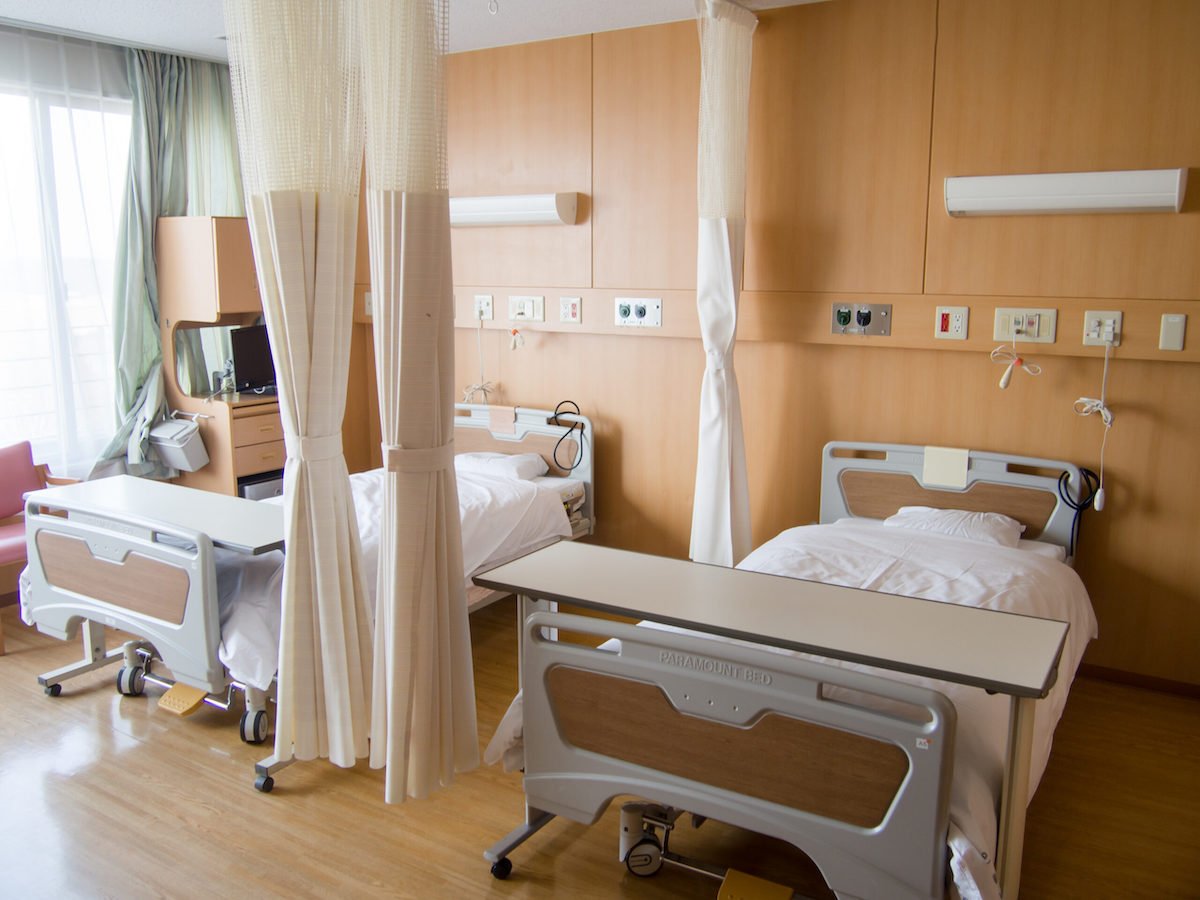
Are you planning to work in Japan from abroad but worried about navigating the country’s complex medical system? Japan’s healthcare system is renowned for its efficiency and high-quality care, but for foreign workers who are unfamiliar with the language and customs, it can be a daunting experience. In this article, we’ll guide you through everything you need to know about accessing healthcare in Japan, from finding the right medical facilities to understanding insurance coverage and making appointments. With our tips, you can be confident that you’ll receive the best possible care while living and working in Japan.
The Basics of Japanese Healthcare
The Japanese healthcare system is based on a National Health Insurance (NHI) scheme, which is mandatory for all residents, including foreign workers. The insurance covers a wide range of medical services, including doctor visits, hospitalization, and prescription medications. To sign up for the national health insurance, you’ll need to visit your local city or ward office and provide proof of residency, such as a residence card or visa. Once enrolled, you’ll receive a health insurance card that you can use to access medical services.
In Japan, the NHI scheme operates on a 70/30 split. This means that patients are responsible for paying 30% of their medical costs, while the insurance covers the remaining 70%. However, there are some exceptions to this rule, such as for elderly patients, pregnant women, and those with certain chronic conditions, who may be eligible for a higher level of coverage. It’s also worth noting that some medical services, such as preventive care and vaccinations, are fully covered by insurance. It’s important to understand the details of your insurance coverage to avoid unexpected expenses and to make the most of your benefits.
For most foreigners, the easiest way to access the Japanese medical system is through their employer’s insurance program. Many employers in Japan offer health insurance coverage as part of their employee benefits package, which often includes coverage for dependents as well. If your employer doesn’t provide health insurance, you can enrol in the national health insurance program as described above. Additionally, some private health insurance providers offer coverage for foreign residents in Japan, but these plans can be expensive and may have limited coverage. It’s essential to understand your insurance coverage and associated costs to ensure you can access the care you need when needed.
To be honest, in all of my time living here, the cost of medical care has never worried me. But there was a time I was rather shocked by the system. I burned my leg on a motorbike exhaust pipe and was told I’d probably need a skin graft. Being from England, I’ve never once thought about not choosing treatment because of price. But when the doctor quoted me £1000 for the graft and potentially double costs because I needed it right before the end of the month, which apparently means you pay twice, I gave the whole thing a second thought. Whilst a lot of my American friends were shocked at how cheap they thought it was, I personally felt different. To be honest though, in England the services are free, but it takes an age to get treated. I could have been treated within a few days here, but that doesn’t stop the burn of a couple of thousand pounds.

Comfortable hospital bed
Finding the Right Care
Compared to countries like the United States and the United Kingdom, general practitioners (GPs) are not as common in Japan. Instead, the Japanese healthcare system is based on a referral system, where patients typically see a specialist for a specific health issue rather than a generalist. This means that patients may need to see multiple doctors for different health concerns, rather than having a single GP to oversee their overall health.
The lack of GPs in Japan is partly due to the country’s unique healthcare system and cultural attitudes towards medicine. In Japan, doctors are highly specialized and often trained in a particular field of medicine, which allows them to offer advanced and specialized care to patients. Additionally, many Japanese patients prefer to see specialists rather than GPs, as they believe that specialists have a higher level of expertise and can offer more effective treatment.
When choosing a medical facility, it’s essential to consider factors such as location, reputation, and insurance coverage. Many hospitals in Japan have English-speaking staff, which can be helpful for foreigners who are not fluent in Japanese. Additionally, some hospitals and clinics specialize in treating foreign patients and offer interpretation services and other support. That said, don’t expect fluency as a standard. You might just get a few words here and there that help you understand the problem and the treatment, and those few words might class as “English support”. Either way, I find that if a doctor is willing to put the effort into communicating with you, you’ll have no issues understanding.
The Japanese system can be challenging for foreigners to navigate, especially if they are used to seeing a GP for their medical needs. It’s essential to understand the different types of medical facilities and specialists available and to ask for referrals from your primary care doctor if needed.
In my experience, asking a Japanese person what a certain condition falls under is the best way to go about it. When I burned my leg, it was pretty straightforward that a dermatologist could be my initial port of call. But I’ve had other injuries where I just had a punt and guessed the right place. I’ve occasionally be sent around to different places but that’s just part of the deal here.
One thing that I think is worth noting about working in Japan is that people often choose to take annual leave rather than sick leave for their hospital appointments. When you have to go to a load of different places for different health concerns, this can rack up a lot of annual leave. Most places have sick leave officially included in contracts, but just know it might be a bit culturally difficult to use it.
Making an appointment
To make an appointment at a clinic in Japan, you can call ahead or visit the clinic directly. Some clinics offer same-day appointments, while others require you to book in advance. Many clinics in Japan operate on a first-come, first-served basis, so it’s essential to arrive early to avoid long waits.
When you arrive at the clinic, you’ll typically be asked to fill out a registration form with your personal information, including your name, address, and insurance details. Most places will accept you writing this in English, but I have had occasions where they’ve only accepted Japanese. Be ready to copy Kanji off your phone just in case. After registration, you’ll be asked to wait in a waiting room until the doctor is ready to see you.
During the consultation, the doctor will ask you about your symptoms, medical history, and any medications you are currently taking. Depending on the severity of your illness, the doctor may prescribe medication or recommend further testing or specialist care. If you require further treatment or hospitalization, the doctor will provide a referral to a specialist or hospital.
In Japan, there is a strong cultural respect for doctors, which can make it challenging for patients to discuss different treatment options or take their medical care into their own hands. This respect for doctors is deeply ingrained in Japanese society, and patients are often expected to trust and follow their doctor’s advice without question.
As a result, some patients feel hesitant to ask questions or raise concerns about their treatment, even if they have doubts or disagreements with their doctor’s recommendations. This can be especially challenging for foreigners who may be used to more assertive or participatory roles in their medical care.
Furthermore, the Japanese healthcare system places a strong emphasis on prescription medication, and patients may be discouraged from self-medicating or trying alternative treatments. It’s essential to understand that Japanese doctors may be less open to alternative therapies, and patients should approach these discussions with respect and an open mind.
Despite these challenges, it’s still possible to have a collaborative relationship with your doctor in Japan. Patients should feel comfortable asking questions and discussing their concerns, but it’s important to do so in a respectful and non-confrontational manner. It can be helpful to bring a Japanese-speaking friend or translator to appointments to ensure that you can communicate effectively with your doctor.
The JET Programme
As a participant in the Japan Exchange and Teaching (JET) Programme, participants are required to enrol in the National Health Insurance (NHI) system. The JET Programme helps in enrolling in the NHI, and participants are responsible for paying monthly premiums based on their income. The NHI provides coverage for a range of medical services, including consultations, tests, and surgeries, and participants can choose their own medical providers within the NHI system. However, it’s important to note that the NHI may not cover all medical expenses, and participants may need to pay some out-of-pocket costs for certain services. Overall, the NHI provides essential health coverage for JET Programme participants during their time in Japan.
The Take-home Message
Medical care in Japan is top-notch and you’ll certainly receive the care you need to solve almost any issue, permitting you’re willing to navigate the cultural and language barriers that make the whole thing a bit daunting. Ask a Japanese speaking friend to help you out and you should be fine though. Unlike other countries, you’ll be able to easily get access to an insurance scheme that’ll surely put your mind at ease whilst you live here. I’ve encountered very few issues with the medical system over my 4 years living in Japan, so please don’t have that as a worry if you’re thinking of moving here!



















